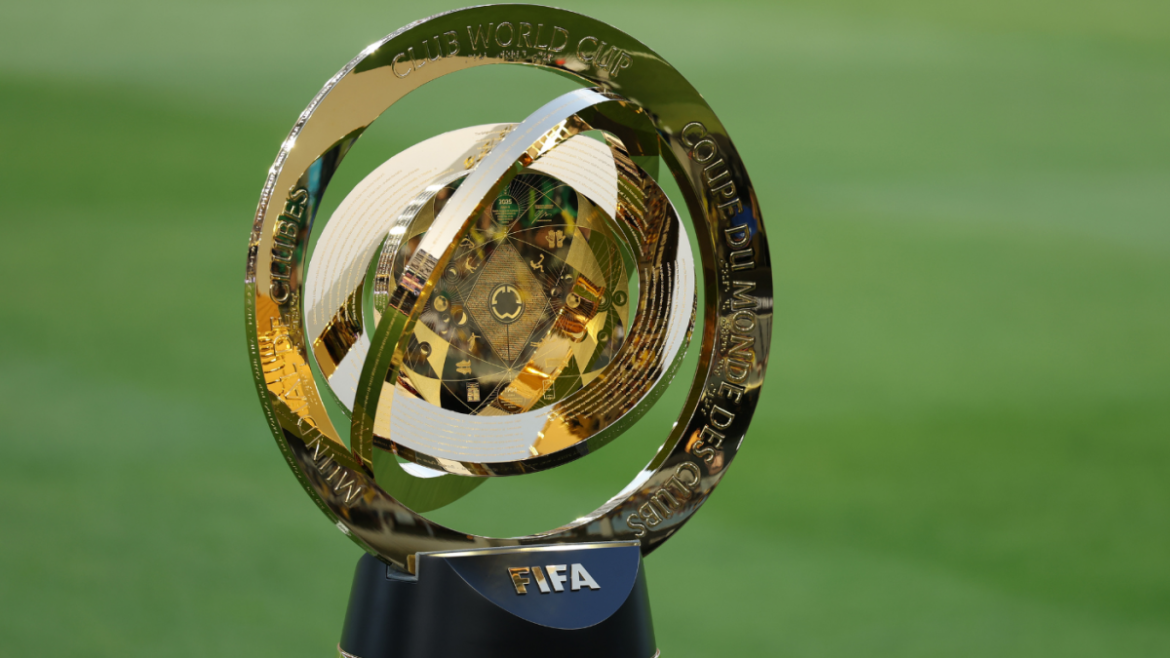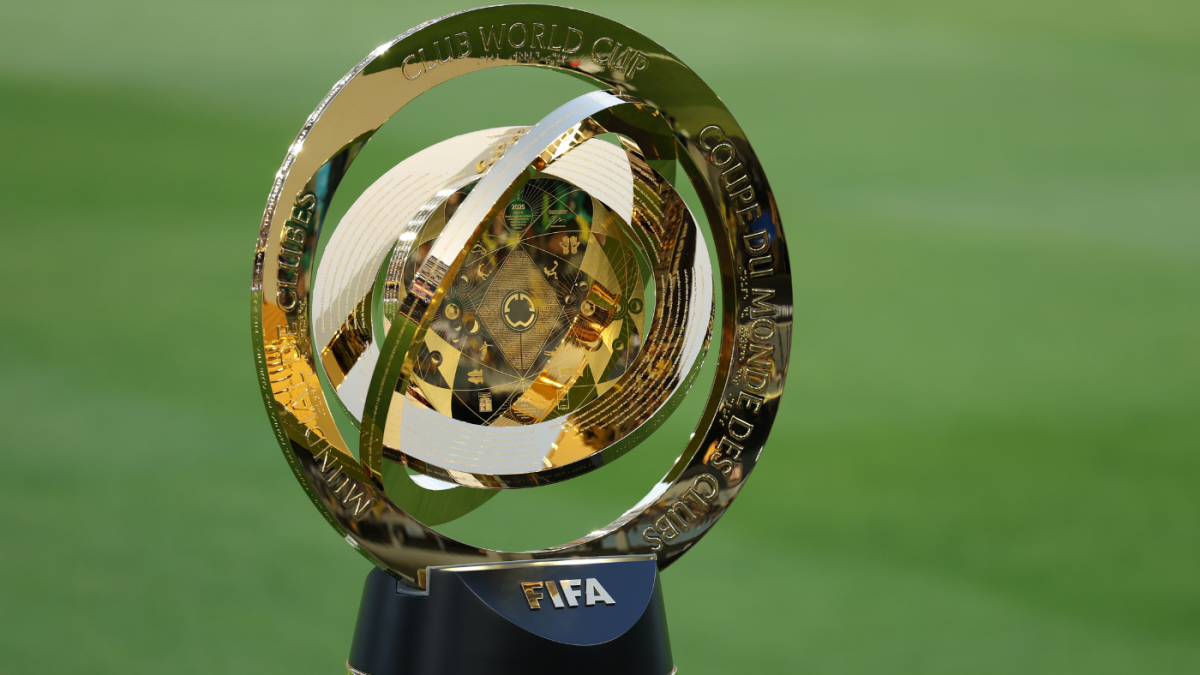The Expanded Universe: A Deep Dive into the 2025 FIFA Club World Cup
The 2025 FIFA Club World Cup marks a significant evolution in the tournament’s history. Moving beyond its traditional format, this iteration features an unprecedented 32 teams competing for global club supremacy, a substantial increase from the previous eight-team structure. Held across multiple venues in the United States – Miami, Charlotte, Seattle, Philadelphia, and culminating in the final at MetLife Stadium in New Jersey – the tournament is poised to be a month-long spectacle, running from June 14th to July 13th. This report provides a comprehensive overview of the schedule, key matchups, broadcast details, and the overall significance of this expanded competition.
A Tournament of Firsts: Format and Key Dates
The expanded format is the defining characteristic of the 2025 Club World Cup. The competition begins with a group stage, dividing the 32 teams into eight groups. This initial phase, spanning from June 14th to June 26th, will determine the 16 teams advancing to the knockout stage. The knockout rounds – Round of 16, Quarter-Finals, Semi-Finals, and the Final – will then unfold, culminating in the championship match on July 13th.
Early fixtures already confirmed highlight the excitement. The tournament kicked off on June 14th with a match between Al Ahly FC and Inter Miami CF at Hard Rock Stadium in Miami. Other notable group stage matches include Inter Milan versus River Plate, played at Lumen Field in Seattle on June 25th at 9pm ET, and Real Madrid facing Pachuca on June 22nd at Bank of America Stadium in Charlotte at 3pm ET. Further group stage action features River Plate versus Monterrey, scheduled for 9 p.m. ET. The Round of 16 will follow, setting the stage for intense competition as teams battle for a place in the latter stages.
Global Powerhouses Converge: Participating Teams and Storylines
The 2025 Club World Cup boasts a roster of globally recognized footballing giants. Confirmed participants include Real Madrid, Manchester City, Inter Milan, and Inter Miami CF, representing Europe and North America. The inclusion of teams from across the globe – including those from South America (River Plate), Africa (Al Ahly FC), Asia (Urawa Red Diamonds, Monterrey), and beyond – underscores the tournament’s truly international scope.
Several compelling storylines are emerging. For Real Madrid, the tournament marks the beginning of the Alonso era, as Xabi Alonso takes the reins as manager. Lionel Messi will be chasing his fourth Club World Cup title with Inter Miami, adding another layer of intrigue to the competition. Inter Milan, under Simone Inzaghi, will also be looking to add to their trophy cabinet. The participation of Bayern Munich, evidenced by their dominant 10-0 victory in an early match, further emphasizes the high level of competition.
Accessibility and Broadcast: Watching the Action Unfold
A key aspect of the 2025 FIFA Club World Cup is its commitment to accessibility. DAZN has secured the global broadcast rights, offering live streaming of all 63 matches for free through the DAZN App. This app is available across a wide range of devices, including smart TVs, phones, tablets, streaming devices, game consoles, and web browsers. In the United States, matches will also be available on TNT/truTV and Univision/TUDN, providing viewers with multiple options to follow the action. For Indian audiences, FanCode app and website will provide live streaming access. This broad distribution strategy ensures that fans worldwide can easily tune in to witness the tournament.
Venue Variety: A Coast-to-Coast Experience
The decision to host the tournament across multiple venues in the United States is a strategic one, aiming to maximize fan engagement and showcase the growing popularity of football in the country. The selected cities – Miami, Charlotte, Seattle, Philadelphia, and New Jersey – represent diverse regions and fan bases. This geographically dispersed approach allows for a broader reach and provides fans with the opportunity to experience the tournament firsthand in their respective regions. The final at MetLife Stadium in New Jersey, a venue with a proven track record of hosting major sporting events, is expected to draw a significant crowd and provide a fitting climax to the competition.
Navigating the Schedule: Key Dates and Times
Understanding the tournament schedule is crucial for fans planning to follow the action. The group stage runs from June 14th to June 26th, with matches typically kicking off from 12 p.m. ET onwards. The knockout stage begins with the Round of 16, followed by the Quarter-Finals, Semi-Finals, and ultimately, the Final on July 13th. Specific kickoff times vary depending on the venue and match, with times listed in local time zones (EDT, CDT, PDT, and BST). Staying updated with the latest fixtures and results can be easily achieved through the official FIFA website and DAZN’s dedicated Club World Cup coverage.
The Significance of Expansion: A New Era for Club Football
The expansion to 32 teams represents a paradigm shift for the FIFA Club World Cup. It elevates the tournament’s prestige and competitiveness, bringing together a more diverse and representative field of clubs from across the globe. This expanded format not only provides a platform for more teams to compete on the world stage but also generates increased revenue and global interest in the competition. The 2025 edition is widely viewed as a precursor to a future, regularly scheduled 32-team Club World Cup, solidifying its position as a premier event in the international football calendar.
A Global Showcase: The Future of the Club World Cup
The 2025 FIFA Club World Cup is more than just a tournament; it’s a statement. It’s a demonstration of FIFA’s commitment to globalizing the sport, increasing accessibility for fans, and elevating the profile of club football on an international scale. The combination of a new format, star-studded teams, widespread broadcast coverage, and diverse host cities promises a captivating and memorable experience for football enthusiasts worldwide. This tournament isn’t simply about crowning a champion; it’s about shaping the future of club football and solidifying the FIFA Club World Cup as a cornerstone of the global sporting landscape.





